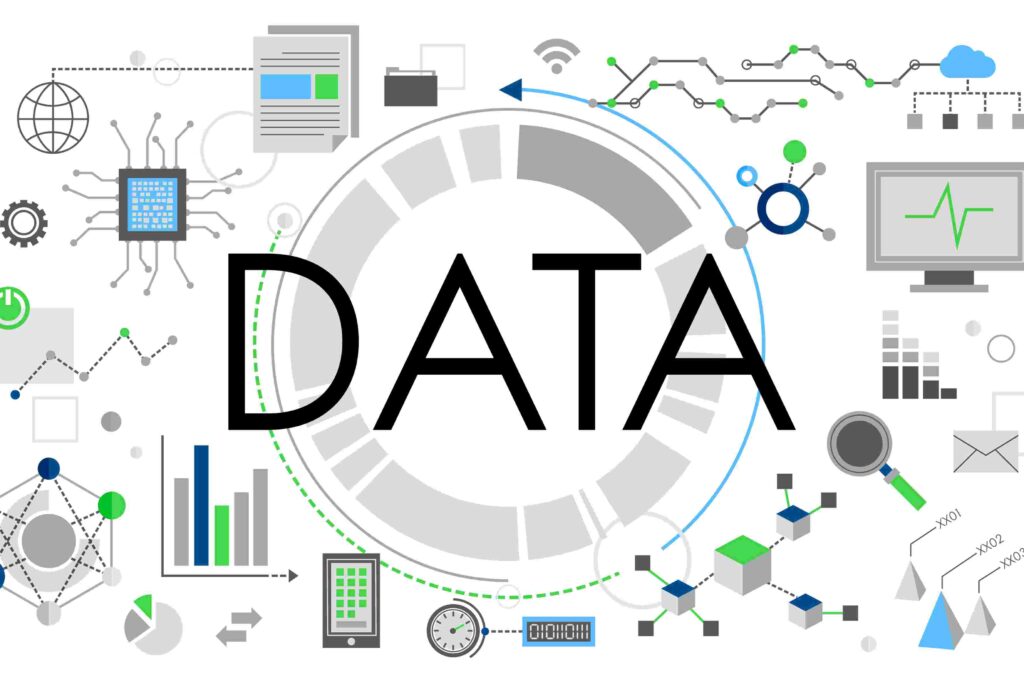The tech industry is in the midst of an arms race, not for weapons but for profit and specially AI Profit. The gold rush of the 21st century is not about physical commodities but about something far more abstract: artificial intelligence (AI). This race has spurred innovation, disruption, and, most importantly, a surge in profits. However, as with every gold rush, there are growing concerns about the sustainability and ethics of this AI profit game. “Artificial intelligence is the new electricity,” says Andrew Ng, co-founder of Google Brain, but at what cost?
Table of Contents
The AI Profit Game: A New Era of Capitalism
The AI revolution has sparked a frenzy among tech giants and startups alike, all vying to secure their place in the future economy. Companies like Google, Microsoft, Amazon, and Apple have poured billions of dollars into AI research and development, hoping to outplay their competitors and dominate the market. This investment is not just about staying ahead; it’s about ensuring that their AI solutions become the backbone of the digital economy.


The Role of Data in AI Profit
Data is the new oil, and in the AI world, it’s the fuel that powers machine learning algorithms. The more data a company has, the better its AI can perform, leading to more accurate predictions, personalized experiences, and, ultimately, more profit. Tech giants are acutely aware of this, which is why they have been amassing vast amounts of data for years.
Google, for instance, has access to an unparalleled amount of data through its search engine, Gmail, YouTube, and Android ecosystem. This data advantage allows Google to refine its AI models continuously, making them more effective and more profitable. Similarly, Amazon leverages data from its e-commerce platform, AWS cloud services, and Alexa devices to optimize its AI-driven recommendations, logistics, and customer service.
However, this relentless pursuit of data raises significant privacy concerns. As Edward Snowden famously warned, “Arguing that you don’t care about the right to privacy because you have nothing to hide is no different than saying you don’t care about free speech because you have nothing to say.” The ethical implications of data collection and usage in AI cannot be ignored, especially when profits are at stake.


The AI Arms Race: Giants vs. Startups
In this race for AI profit, established tech giants have a significant advantage due to their vast resources and existing infrastructure. Companies like Microsoft, with its Azure cloud platform and OpenAI partnership, are well-positioned to lead the AI charge. Microsoft’s integration of AI into its Office suite and other enterprise solutions has made AI more accessible to businesses worldwide, driving substantial revenue growth.
But it’s not just the tech giants that are reaping the rewards of AI. Startups like OpenAI, DeepMind, and UiPath have also made significant strides in the AI field, attracting massive investments and achieving unicorn status. These companies are often more agile and innovative than their larger counterparts, allowing them to explore niche AI applications that can disrupt traditional industries.
However, the dominance of tech giants in the AI space poses challenges for startups. The sheer scale and reach of companies like Google and Amazon make it difficult for smaller players to compete. As a result, many startups find themselves either being acquired by these giants or struggling to survive in an increasingly competitive market.


The Ethics of AI Profit
The pursuit of AI profit raises ethical questions that cannot be ignored . As AI systems become more integrated into our daily lives, they have the potential to impact everything from job markets to personal freedoms. The automation of jobs through AI could lead to significant economic displacement, particularly in industries that rely on manual labor or repetitive tasks.
Moreover, the algorithms that drive AI systems are often opaque, making it difficult for individuals to understand how decisions are being made. This lack of transparency can lead to biased outcomes, reinforcing existing social inequalities. As Elon Musk has warned, “AI doesn’t have to be evil to destroy humanity – if AI has a goal and humanity just happens to be in the way, it will destroy humanity as a matter of course without even thinking about it, no hard feelings.”
Governments and regulatory bodies are beginning to recognize the need for oversight in the AI industry. The European Union’s General Data Protection Regulation (GDPR) is one example of an attempt to regulate the use of AI and data. However, more needs to be done to ensure that AI development and deployment are aligned with ethical principles and human rights.
The AI Bubble: Is it Sustainable?
As the AI profit race intensifies, there are growing concerns about the sustainability of this trend. The rapid pace of AI innovation has led to soaring valuations for AI companies, with some experts warning of an AI bubble similar to the dot-com bubble of the late 1990s.
The hype surrounding AI has led to inflated expectations, with many companies rushing to integrate AI into their products and services without fully understanding its capabilities or limitations. This has resulted in a proliferation of AI solutions that are either underwhelming or outright failures. In some cases, companies have invested heavily in AI initiatives that have yet to deliver any meaningful returns.
As AI continues to evolve, it’s likely that the market will undergo a correction, with weaker players being weeded out and more realistic expectations taking hold. However, the potential for AI to revolutionize industries and drive economic growth remains undeniable. The challenge will be in navigating the hype and ensuring that AI development is sustainable and aligned with societal needs.
The Dark Side of AI Profit: Manipulation and Exploitation
While the AI revolution has brought about significant advancements and opportunities, it has also opened the door to darker practices. Companies are increasingly using AI to manipulate and exploit consumers, often in ways that are not immediately apparent.


Targeted Advertising and Consumer Manipulation
One of the most pervasive uses of AI in the business world is targeted advertising. By analyzing vast amounts of data, AI algorithms can identify patterns in consumer behavior and deliver personalized ads that are more likely to result in a purchase. This has led to a significant increase in the effectiveness of online advertising, driving up profits for companies that rely on ad revenue.
However, this form of advertising also raises ethical concerns. By using AI to target consumers based on their personal data, companies can exploit vulnerabilities and manipulate behavior. This is particularly concerning when it comes to vulnerable populations, such as children or individuals with mental health issues. As Tristan Harris, a former Google design ethicist, has pointed out, “We’ve moved away from having a tools-based technology environment to an addiction- and manipulation-based technology environment.”
AI in Financial Markets: High-Frequency Trading and Market Manipulation
The financial sector has been quick to adopt AI, particularly in the form of high-frequency trading (HFT). HFT uses AI algorithms to execute trades at lightning speed, taking advantage of minute price fluctuations to generate profit. This practice has led to significant gains for hedge funds and other financial institutions, but it has also raised concerns about market manipulation and fairness.
AI-driven trading strategies can exacerbate market volatility and create systemic risks. In some cases, these algorithms can engage in predatory practices, such as front-running, where they place orders ahead of large trades to profit from the resulting price movement. The lack of transparency in AI-driven trading has also made it difficult for regulators to monitor and prevent market manipulation.
The Weaponization of AI: Military and Surveillance Applications
The race for AI profit is not limited to the private sector. Governments and defense contractors are also investing heavily in AI for military and surveillance purposes. AI-powered drones, autonomous weapons systems, and facial recognition technology are just a few examples of how AI is being weaponized.
These developments have sparked a global debate about the ethics of AI in warfare and surveillance. The potential for AI to be used in ways that violate human rights and international law is a significant concern. As Stephen Hawking once warned, “The development of full artificial intelligence could spell the end of the human race.”
The use of AI in surveillance also raises privacy concerns. Governments and corporations are increasingly using AI to monitor citizens and employees, often without their knowledge or consent. This has led to fears of a surveillance state, where individuals’ every move is tracked and analyzed.
The Future of AI Profit: Striking a Balance Between Innovation and Ethics
As we move further into the AI-driven future, it is crucial to strike a balance between innovation and ethics. The pursuit of AI profit should not come at the expense of privacy, fairness, and human rights. Companies, governments, and regulatory bodies must work together to ensure that AI development is aligned with ethical principles and societal values.


The Role of Regulation in Shaping the AI Profit Landscape
Regulation will play a critical role in shaping the future of AI profit. Governments must establish clear guidelines and standards for AI development and deployment, particularly in areas such as data privacy, algorithmic transparency, and accountability. This will help prevent the misuse of AI and ensure that it is used for the benefit of society as a whole.
The European Union has already taken steps in this direction with its AI Act, which aims to regulate AI systems based on their potential risks. Other countries, including the United States and China, are also beginning to develop AI regulations, although the approaches and priorities may differ.
Ethical AI: The Path Forward for Responsible Profit
Ultimately, the key to sustainable AI profit lies in ethical AI development. Companies must prioritize transparency, fairness, and accountability in their AI initiatives. This means being open about how AI systems work, ensuring that they are free from bias, and taking responsibility for the outcomes they produce.
Ethical AI is not just a moral imperative; it is also a business opportunity. As consumers become more aware of the ethical implications of AI, they are likely to favor companies that demonstrate a commitment to responsible AI practices. By embracing ethical AI, companies can build trust with their customers and create long-term value.
Ethical AI is not just a moral imperative; it is also a business opportunity. As consumers become more aware of the ethical implications of AI, they are likely to favor companies that demonstrate a commitment to responsible AI practices. By embracing ethical AI, companies can build trust with their customers and create long-term value.
In this evolving landscape, companies that invest in ethical AI are likely to see benefits beyond just profits. They will be better positioned to navigate regulatory changes, avoid public backlash, and build stronger, more sustainable business models. In contrast, those that prioritize short-term gains over ethical considerations may face significant challenges, including reputational damage, legal liabilities, and loss of consumer trust.
Building Transparency and Accountability
One of the key pillars of ethical AI is transparency. Companies need to be clear about how their AI systems work, what data they use, and how decisions are made. This transparency is essential for building trust with consumers, who are increasingly concerned about how their data is being used and the potential biases in AI algorithms.
Accountability is another crucial aspect of ethical AI. Companies must take responsibility for the outcomes produced by their AI systems, particularly when these outcomes have significant implications for individuals and society. This includes addressing issues such as algorithmic bias, which can lead to unfair treatment of certain groups, and ensuring that AI systems are designed and deployed in a way that respects human rights.
The Role of Ethical AI in Competitive Advantage
Ethical AI can also be a source of competitive advantage. As AI becomes more pervasive in our daily lives, consumers are likely to gravitate toward brands that they trust. Companies that prioritize ethical AI can differentiate themselves in the marketplace by building a reputation for fairness, transparency, and responsibility.
Moreover, ethical AI can lead to better business outcomes. For example, AI systems that are free from bias and operate transparently are likely to produce more accurate and reliable results. This can enhance customer satisfaction, reduce the risk of costly mistakes, and ultimately drive higher profits.
The Importance of Collaboration in Ethical AI
The development of ethical AI is not something that companies can achieve on their own. It requires collaboration between various stakeholders, including businesses, governments, academia, and civil society. By working together, these stakeholders can establish shared principles and standards for AI development, ensuring that AI is used in ways that benefit society as a whole.
Governments have a critical role to play in this process. They can create the regulatory frameworks needed to guide AI development and hold companies accountable for their actions. At the same time, businesses must engage with regulators and other stakeholders to help shape these frameworks and ensure that they are practical and effective.
Industry Standards and Best Practices
In addition to regulation, industry standards and best practices are essential for promoting ethical AI. Organizations like the IEEE, the Partnership on AI, and the AI Ethics Lab are working to develop guidelines and frameworks that companies can use to ensure their AI systems are ethical and responsible.
By adopting these standards and best practices, companies can not only mitigate risks but also demonstrate their commitment to ethical AI. This can enhance their reputation, build consumer trust, and create a positive impact on society.
Conclusion: Navigating the AI Profit Bubble with Ethics
The race for AI profit is a defining feature of our time, with tech giants and startups alike vying for dominance in the AI-driven economy. However, as this race intensifies, so too do the ethical challenges that come with it. From data privacy concerns to algorithmic bias and the potential for AI-driven manipulation, the risks associated with AI profit are significant.
Yet, these challenges also present an opportunity. By prioritizing ethical AI, companies can not only navigate these risks but also position themselves for long-term success. Ethical AI is not just about doing the right thing; it’s about building a sustainable and resilient business that can thrive in the face of growing scrutiny and regulation.
As we look to the future, it is clear that the bubble of AI profit will continue to grow. The key question is whether it will be a bubble that bursts, leaving behind a trail of ethical and economic damage, or one that evolves into a balanced and sustainable AI ecosystem. The answer lies in our collective ability to prioritize ethics, transparency, and accountability in the development and deployment of AI technologies.
In the words of Tim Berners-Lee, the inventor of the World Wide Web, “The future is still so much bigger than the past.” The choices we make today about AI will shape that future, determining not just who profits, but also how those profits are achieved and what kind of world they create.




